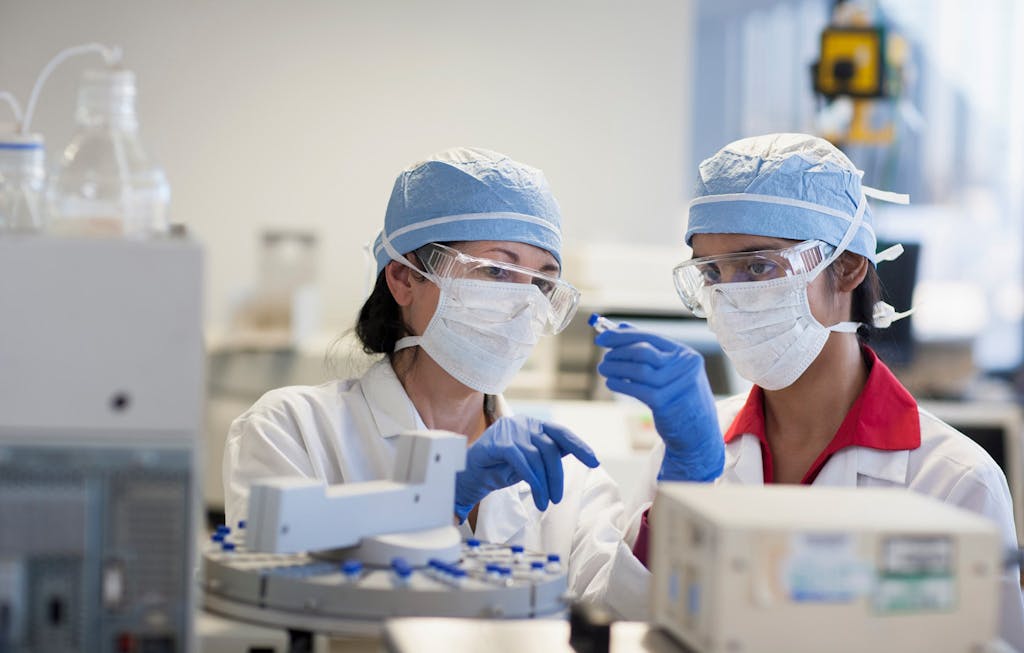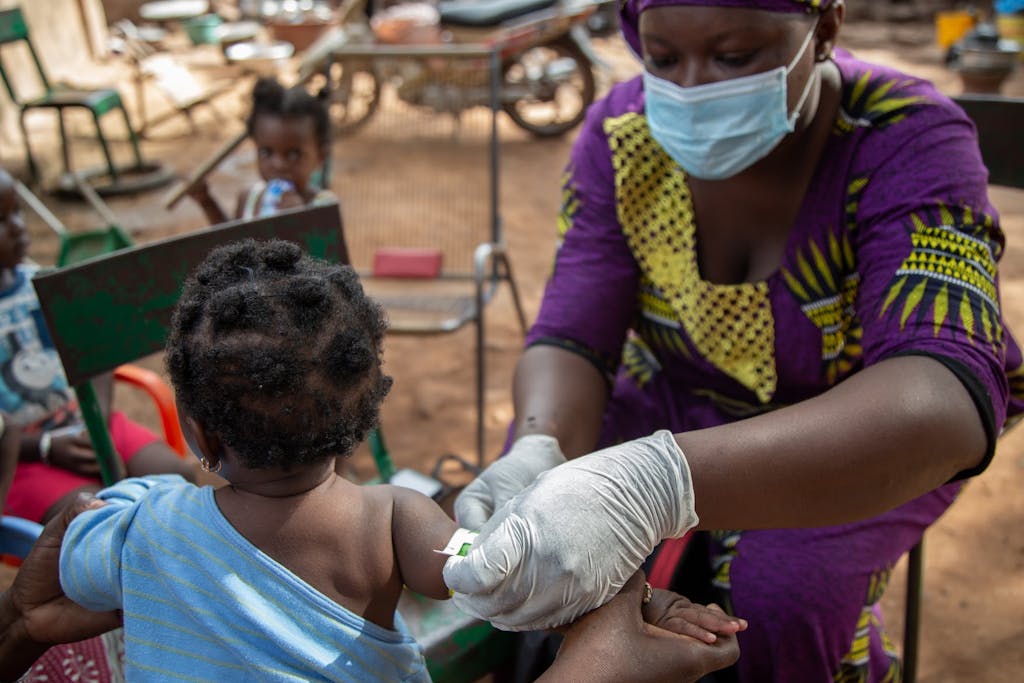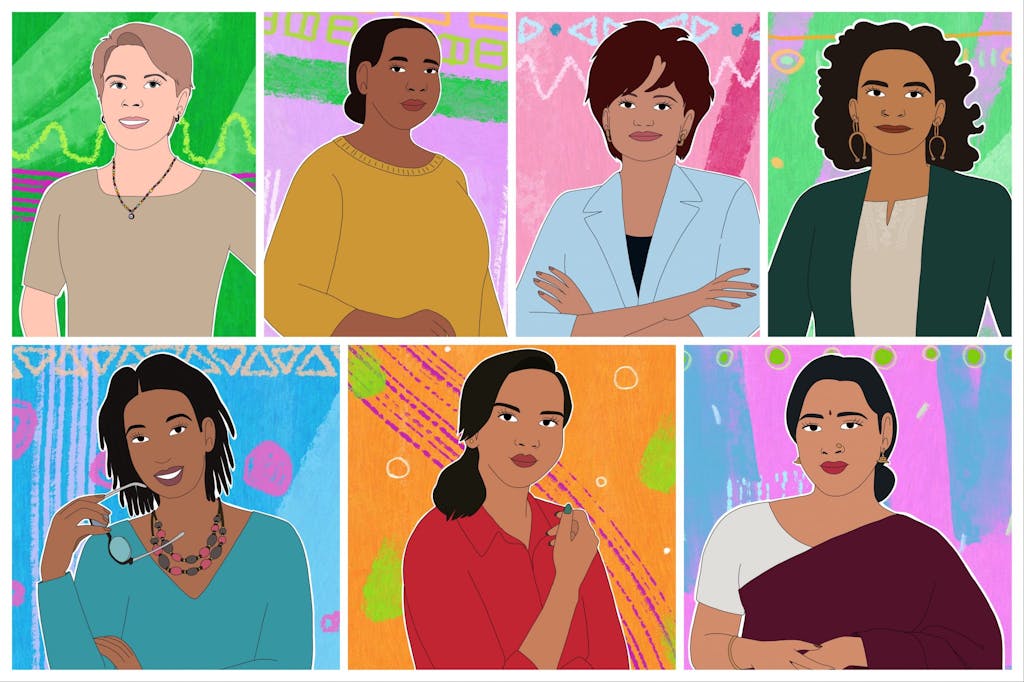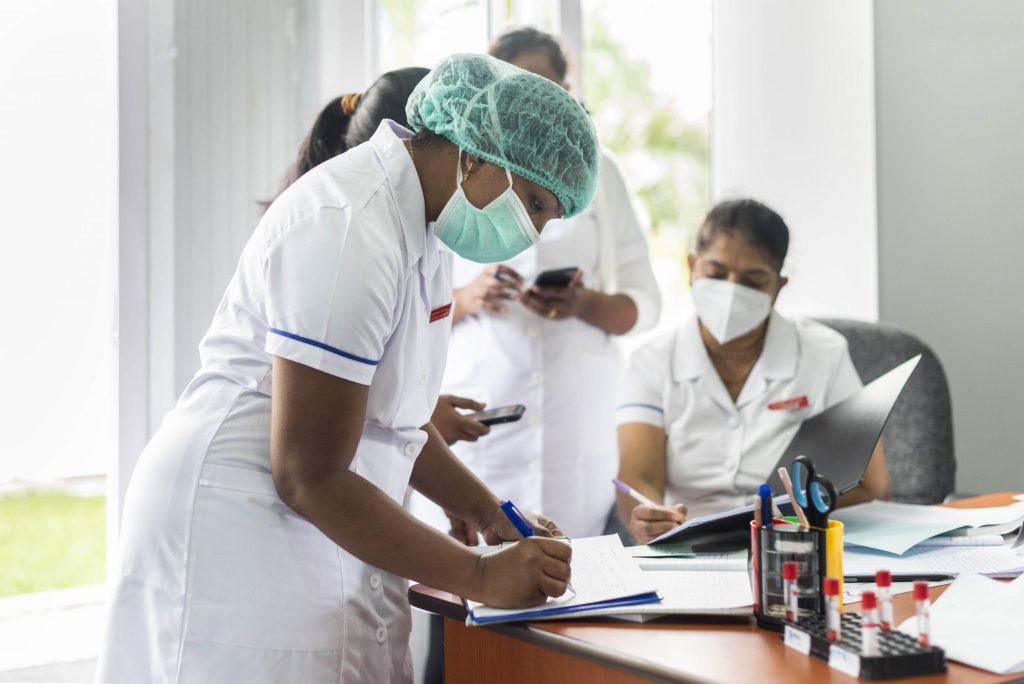The COVID-19 pandemic has overwhelmed well being care methods throughout the globe and pushed well being care staff previous the breaking level. rising illness threats, coupled with a rising, getting old inhabitants, will demand extra educated well being staff than ever earlier than. regardless of the important position these frontline staff play, there may even be an anticipated scarcity of 18 million well being staff. It’s a area of curiosity that can urgently want to be stuffed to attain the Sustainable development goals in low- and center-earnings international areas by 2030.
Any dialogue about strengthening capacities to cease, detect, and reply to future well being threats — an just like any dialogue about attaining the SDGs — requires a deal with the important position that frontline well being staff play. And any dialogue on supporting the wants of frontline staff should start with addressing gender gaps.

evaluation displays that gender discrimination, segregation, and stereotypes cluster women in decrease standing and decrease-paid roles akin to nursing, whereas males usually are likely to work in greater-standing, greater-paid roles akin to performing surgical procedure. many women well being staff should deal with unsafe work environments or face violence or sexual harassment, and a lot of are excluded from decision-making. women comprise 70% of the worldwide well being workforce however maintain solely 25% of the senior roles. and women shoulder the overwhelming majority of dwelling take care of kids, the sick, and the aged — unpaid labor worth an estimated $1.5 trillion.
An evaluation by the World well being group (WHO) and women in world well being summed it up succinctly: “usually, women ship world well being and males lead it.” The hardship is taking a toll on women: current research found forty three% of nurses in america and 36% of nurses inside the united kingdom are contemplating leaving the occupation at a time when the world can not afford to lose expert well being staff. Such persistent, dangerous gender inequity not solely disadvantages women well being staff however in addition weakens well being methods, undermines world well being safety and impedes progress in direction of gender equality in any respect ranges.

COVID-19 has solely exacerbated these challenges. A forthcoming report from women in world well being estimates well being worker deaths from COVID-19 to be as extreme as 500,000, with 1000’s and 1000’s extra affected by COVID-19 signs or psychological trauma or each. entry to COVID-19 vaccines stays perilously low in low- and center-earnings international areas: WHO information from 39 African international areas displays that simply eight% of all COVID-19 vaccine doses have gone to well being staff. well being staff in each place are exhausted and indignant, lots of them on strike or beneath assault, the targets of anti-vaccine misinformation campaigns.
Our companions at women in world well being, the place I additionally serve on the Board of directors, have illuminated this important subject as they name for a mannequin new social contract for women well being and social care staff. that can imply offering safe, respectable, dignified jobs and dealing environments the place women are acknowledged, heard, and compensated for his or her laborious work. women well being staff should be empowered as native decision-makers and supplied paths in direction of management. Solidarity is a most important step. Breaking down the boundaries to attaining gender equality inside the well being sector is essential to constructing again greater from COVID-19.
As we push for these reforms, the United Nations basis was proud to associate with women in world well being to acknowledge seven accomplished women who’re well being professionals main the most interesting approach and giving us hope. These women, celebrated inside the most important-ever digital Heroines of well being event, have overcome unimaginable challenges and launched inspiring movement, remaining relentlessly dedicated to delivering extreme quality care.

- Greisy Trejo, a nurse and psychological well being champion in Panama, connects Indigenous, migrant, LGBTQ+, and completely different weak individuals with psychological well being providers.
- Jane Njeri Kagwiria Kubai, a surgical theater assistant in Kenya, was previously a safety guard who now educates communities stopping the unfold of COVID-19: “i do know the ache of the sufferers and their agency,” she said. “We converse, we pray, I encourage and console them.”
- Dr. Myrna Abi Abdallah Doumit, a nurse in Lebanon, led a brave response to the Beirut blast in and after August 2020.
- Neha Mankani, a midwife in Pakistan, helps practice and empower midwives.
- Ramatu Jallo, a group well being worker in Sierra Leone, mobilized the COVID-19 movement Fund for Africa that has raised $20 million to current better than a hundred million gadgets of private defending gear (PPE) to 1000’s of frontline well being staff worldwide.
- Dr. Ruth Diriba, a doctor in Ethiopia, is working to close the gender hole in digital literacy.
- Dr. Vandana Gopikumar, a psychological well being champion in India, is working to interrupt down stigmas round psychological well being and to assist weak women.
Their dedication and fervour will assist transfer the world in direction of a fairer well being workforce. “regardless of how extreme a mountain, it is going to by no means cease our group well being staff from reaching the sick,” said Ramatu Jallo. “What we’d like is PPE. What we’d like is assist from throughout the globe.”
So let’s take a stand for heroines like Ramatu, and finish gender inequality in well being care and in each place. It’s our biggest shot at strengthening our well being methods to attain a safer, extra healthful world.
Featured picture: Blink Media–Gillian Soupe/ WHO

